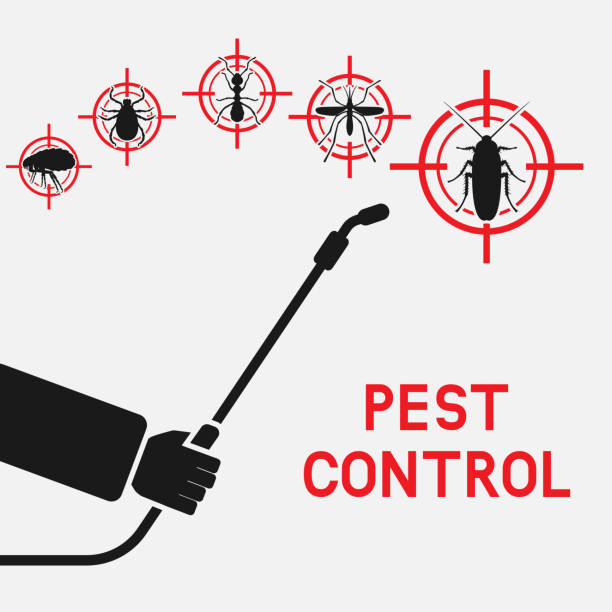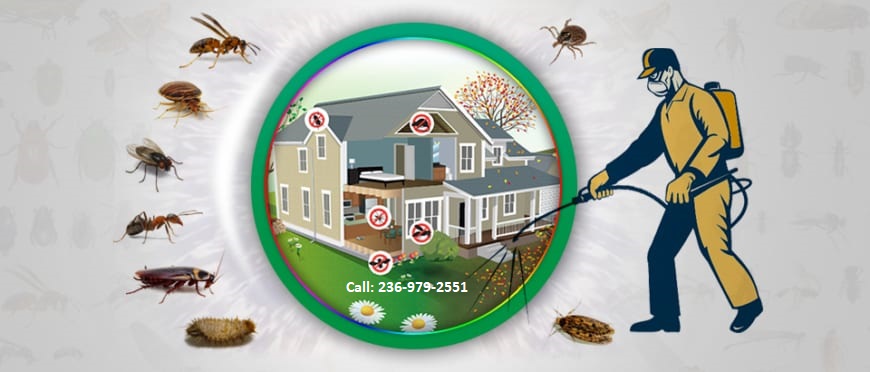Experienced Coquitlam Exterminator for Comprehensive Pest Removal
Experienced Coquitlam Exterminator for Comprehensive Pest Removal
Blog Article
Safe and Trustworthy Parasite Control for Lasting Protection
Effective parasite administration requires a complex technique that balances ecological stability with the need for reliable bug reductions. The subtleties of these techniques might not be right away clear, triggering a more detailed examination of the techniques that can lead to sustainable bug control end results.
Comprehending Bug Control Methods
Insect control incorporates a variety of techniques aimed at managing and eradicating unwanted pests and rodents that can endanger both wellness and residential or commercial property. Recognizing these methods is critical for effective bug management.
The main groups of pest control techniques consist of mechanical, organic, and chemical methods. Mechanical approaches entail physical barriers and traps to stop pest entrance and capture undesirable varieties. Utilizing displays on windows or utilizing sticky catches can considerably reduce parasite populations without introducing dangerous substances - exterminator coquitlam.

Chemical parasite control is usually the most recognized approach, utilizing chemicals to remove bugs. These chemicals can be effective yet have to be utilized with caution to avoid adverse results on non-target types and the atmosphere.
Benefits of Eco-Friendly Solutions
Just how can green solutions change insect control practices? The adoption of green insect control techniques offers various benefits, substantially boosting the effectiveness and security of pest management.

One more benefit is the positive effect on neighborhood biodiversity. Green remedies are developed to target particular insects while preserving advantageous insects and wild animals, advertising a well balanced environment. This strategy lines up with the growing customer need for lasting practices, enhancing the online reputation of parasite control companies.
Integrated Insect Management Strategies
The execution of green remedies naturally leads to the fostering of Integrated Bug Administration (IPM) strategies, which better boost insect control efficacy. IPM is an all natural technique that integrates multiple techniques to handle pest populaces while lessening environmental influence. This method highlights the use of organic, social, mechanical, and chemical controls, making sure a balanced and lasting method of pest monitoring.
One essential aspect of IPM is the thorough analysis of parasite task and environmental conditions. By keeping track of pest populaces and determining their life cycles, experts can implement targeted interventions that interfere with the pest's environment or lifecycle, reducing reliance on chemical pesticides. In addition, cultural methods such as plant rotation and habitat adjustment can substantially diminish insect facility and recreation.
Another critical element is making use of biological control agents, such as valuable insects or best exterminator microbes, which can naturally subdue pest populations. When chemical applications are necessary, IPM prioritizes using low-risk chemicals and uses them selectively, reducing direct exposure to non-target microorganisms and people.
Incorporating IPM techniques not just boosts pest control efficiency yet additionally promotes a safer environment, straightening with the expanding need for lasting techniques in pest management.
Safe Practices for Property Owners
Comprehending the value of Learn More risk-free methods in bug control can encourage home owners to properly take care of parasite issues while safeguarding their health and the environment. Implementing non-toxic approaches and safety nets is crucial in reducing exposure to hazardous chemicals.
Home owners need to initially examine their setting for problems that draw in parasites, such as standing food, clutter, and water waste. Frequently cleaning and sealing access factors can hinder bugs from invading the home. Using all-natural deterrents, such as crucial oils or diatomaceous earth, can provide reliable options to chemical pesticides.
When chemical treatments are essential, house owners should choose products that are specifically labeled as risk-free for residential usage. It is important to follow application guidelines thoroughly to avoid overexposure. In addition, using targeted therapies in locations where insects are recognized, instead of blanket splashing, can considerably minimize chemical usage.
Last but not least, maintaining open communication with bug control professionals is crucial. Homeowners should ask about the safety of products made use of and demand green alternatives whenever possible. By adopting these secure methods, property owners can produce a much healthier living environment while effectively taking care of pest concerns.

Tips for Long-Term Defense
Developing a pest management strategy that emphasizes long-term protection can greatly enhance the effectiveness of the secure techniques formerly gone over. To accomplish this, property owners ought to execute regular inspections of their residential or commercial property, concentrating on hidden locations such as attic rooms, cellars, and crawl rooms. Early discovery of insect activity is important in stopping invasions from holding.
These techniques minimize attractants that attract bugs right into the home. Sealing access points, such as splits around doors and home windows, can successfully block possible insect accessibility.
Landscaping should additionally be thought about; maintaining plants trimmed and keeping a distance between plant life and the home reduces concealing spots for insects. Making use of natural deterrents, such as crucial oils or diatomaceous earth, can better dissuade problems without turning to extreme chemicals.
Lastly, working together with an expert insect control solution for periodic examinations can supply an extra layer of safety. These experts my company can use customized suggestions and progressed therapies, ensuring that your home stays secured versus parasites in the long term.
Conclusion
In final thought, risk-free and trusted insect control needs a diverse strategy that stresses environmentally friendly techniques and incorporated bug monitoring. By implementing natural deterrents, carrying out routine assessments, and preserving correct sanitation, property owners can considerably minimize parasite populaces while securing advantageous bugs and the atmosphere. Cooperation with professional insect control solutions enhances the performance of these strategies, making sure customized services that supply long-term protection and tranquility of mind against future infestations.
Effective insect monitoring requires a diverse approach that balances eco-friendly integrity with the demand for reliable pest suppression. The fostering of environmentally friendly insect control techniques supplies countless advantages, dramatically boosting the efficiency and security of bug administration.The execution of environment-friendly solutions naturally leads to the adoption of Integrated Insect Monitoring (IPM) techniques, which better improve parasite control efficacy. exterminator coquitlam. By monitoring parasite populaces and determining their life cycles, practitioners can carry out targeted interventions that interfere with the bug's habitat or lifecycle, minimizing reliance on chemical pesticides.In verdict, risk-free and reputable insect control calls for a diverse method that emphasizes eco-friendly approaches and incorporated pest administration
Report this page